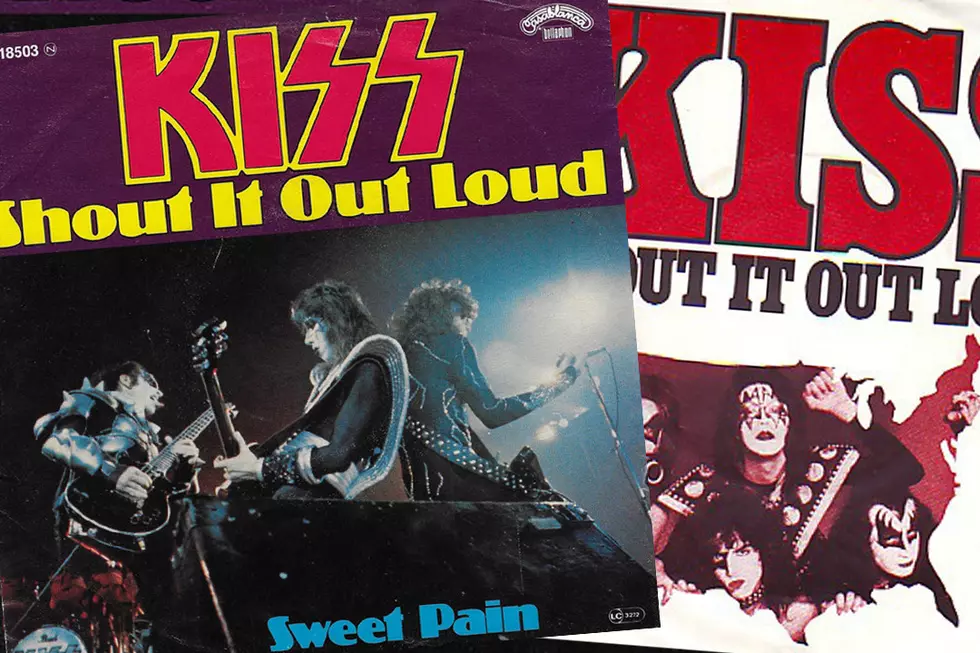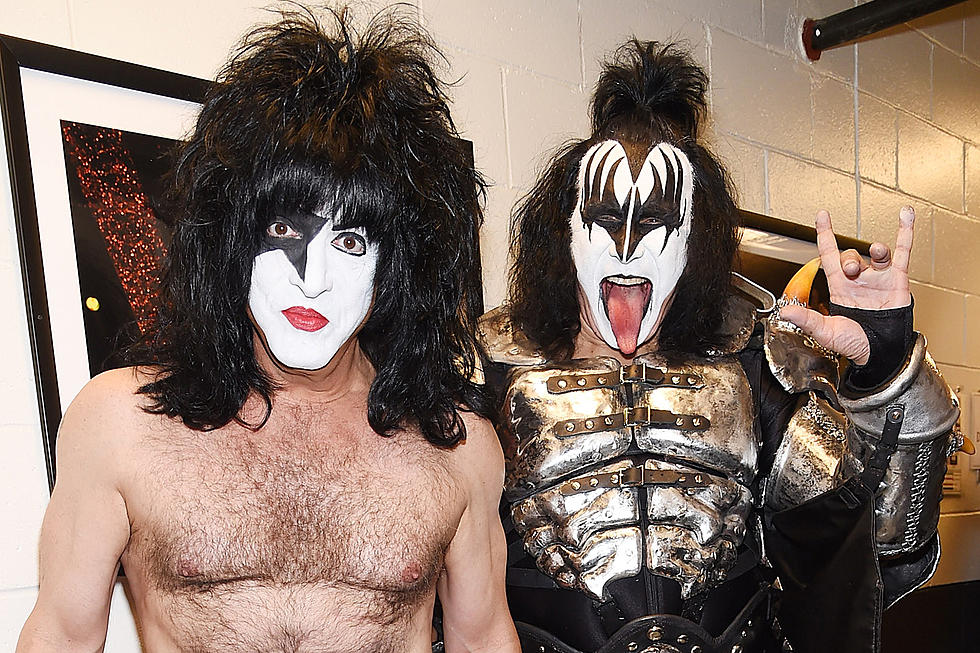
45 Years Ago: Kiss Graduate Boot Camp With ‘Shout It Out Loud’
After surviving what Paul Stanley referred to as "musical boot camp," Kiss debuted a polished new sound on March 1, 1976, with "Shout It Out Loud."
It was the first single from 1976's Destroyer, and a lot was riding on the album. After spending the first few years of their career building a dedicated live following but unable to generate widespread interest in their quickly and cheaply recorded studio records, Kiss had a surprise and massive hit with 1975's concert album Alive!
Eager to keep building on that success - and to finally have an album boast a sound they could be proud of - the group recruited Alice Cooper producer Bob Ezrin to help it take a big step forward.
"Before we started, Bob told me we had to pump these guys up," engineer Corky Stasiak remembered in 2004's Kiss: Behind the Mask. "They were down and out, they'd been kicked around. Their prior studio albums sounded like dog doody. [But] once Alive! started selling, they were so elated, the mood of the Destroyer album changed."
After discovering the band was unaware of terminology and techniques such as half-time and guitar doubling, Ezrin shifted into teacher and coach mode, right down to literally wearing a whistle around his neck. "I dragged a blackboard in, and I started asking questions to find out why they did or didn't know," he explained in Kiss: Behind the Mask. "If you have a common language things go quicker."
"Working with Bob Ezrin that time was like boot camp," Stanley recalled. "We went in there kind of green, and came out a lot smarter for it."
"Shout It Out Loud" drew its title and original inspiration from the Hollies' 1970 song "I Wanna Shout," which Stanley and Gene Simmons had previously reinterpreted as "We Want to Shout It Out Loud" on the unreleased self-titled 1972 album by their pre-Kiss band Wicked Lester.
"I always thought the idea was bigger than what they were trying to say with it," Simmons said of the Hollies' original in Behind the Mask. "I always thought, just like that [unspecified] commercial on TV, that it was just 'Shout It.' When you've got something, you want to shout it out to the world, and it doesn't matter what it is. Bob and Paul kept saying, 'Shout what?' I said 'Who cares!' Whether it's national fervor or my team's better ... it's a team rally. And then Paul came up with the verse."
Listen to Wicked Lester's 'We Want to Shout It Out Loud'
Stanley and Simmons wrote the song in one morning while playing the piano at Ezrin's house before a recording session, with the music of Motown inspiring the song's answering background vocals. "I remember the breakthrough on the song being the descending bass line," Ezrin recalled. "Once I heard that, I knew exactly how I wanted to treat the song."
"Shout It Out Loud" reached No. 31 on the Billboard Hot 100 and went all the way to No. 1 in Canada. Even though the song became one of Kiss' defining anthems, Destroyer's sales didn't really take off until later that summer, when radio DJs began flipping over the album's third single, "Detroit Rock City," to instead play the B-side ballad "Beth," which went on to become the band's first Top 10 hit.
"Coming on the heels of the live album, people were expecting something that was more immediately obvious," Stanley theorized. "And Destroyer was really an album that we hoped would grow on you, that it would last."
Listen to Kiss' 'Shout It Out Loud'
Some fans weren't fully on board with the new sophisticated Kiss, a feeling shared by two members of the band. "Ace [Frehley] and Peter [Criss] were pushing us to get back to basics, to being a four-piece band without arrangements, ballads or someone else telling us how to play," Simmons recalled in his 2001 autobiography Kiss and Make-Up.
"At the time, a certain segment of our fan base felt Destroyer was a very plush record. ... It probably stands the test of time as well as any, but there were violins, so, for some people, that was a problem. Change is always difficult for the hard and heavy."
Kiss shifted back toward a more raw form of rock 'n' roll for Rock and Roll Over, which was recorded in an empty theater in an attempt to better recreate their live sound. The album came out in November 1976, just eight months after Destroyer.
Kiss Albums Ranked
More From 102.9 WBLM






